About The Essenes The Gospel of The Essenes Video Streaming at Bottom of Page
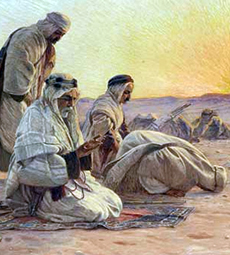
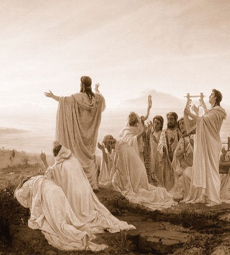
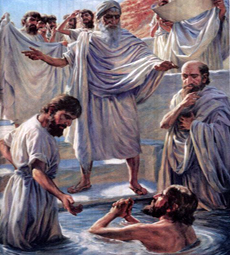
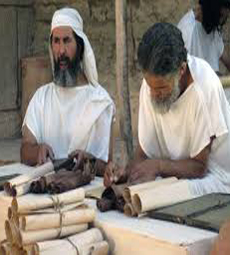
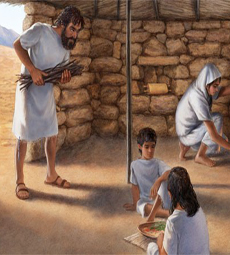
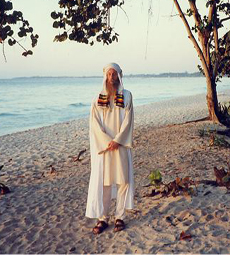
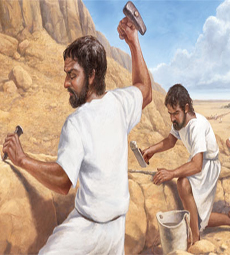
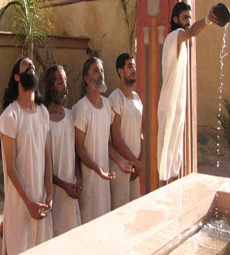
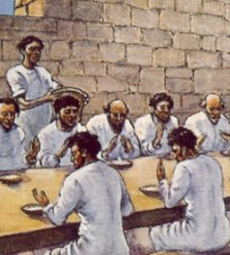
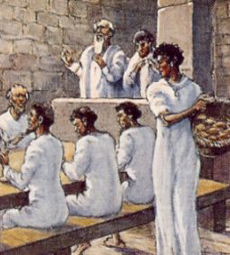
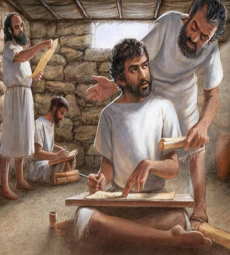
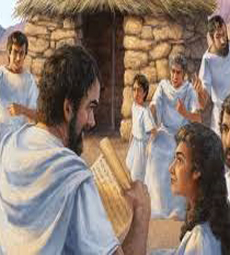
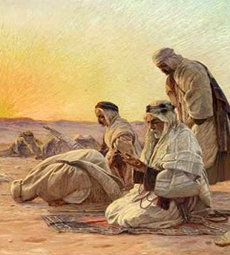
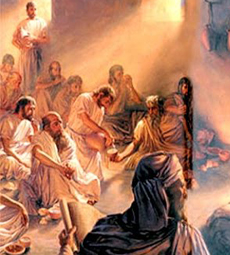
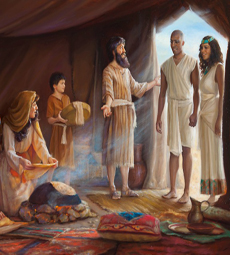

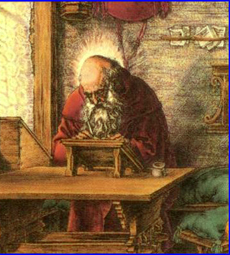
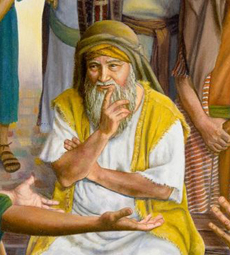
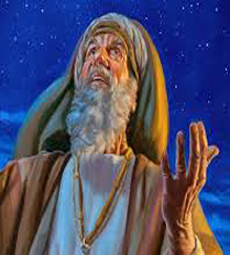
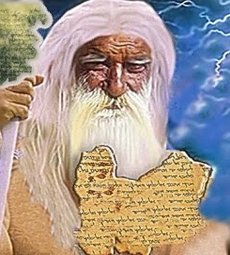
The Essenes were an amazing and mysterious group of people.
Since the archaeological discovery of the Dead Sea Scrolls in 1946 A.D.,
the word "Essene" has made its way around the world, often fueling
controversial debates.
Many people were astonished to discover that, two thousand years ago, a brotherhood of holy men and women, living together in a hidden community, carried within themselves all of the seeds of Christianity and of future western civilization as we know it today.
This brotherhood which was shunned, persecuted and ostracized would bring forth people who would change the face of the world and the course of history.
Indeed, almost all of the principal founders of what would later be called Christianity were Essenes: St. Ann, Joseph and Mary, John the Baptist, James the Rightous, Jesus, and John the Evangelist, etc.
The Essenes considered themselves to be a separate people, not because of external signs like their physical ethnicity, skin color, hair color, etc., but because of the illumination of their inner life, and their knowledge of the hidden mysteries of nature, which was unknown to the majority of mankind.
They considered themselves to also be a group of people at the center of humanity, since everyone could become a participant as soon as they had successfully passed selected tests. They thought, and rightly so, that they were the heirs of God's sons and daughters of old, the heirs to their great ancient civilization.
They possessed advanced knowledge and a high level of spiritual wisdom, and worked assiduously in secret for the triumph of the light over the darkness of the human mind.
They felt that they had been entrusted with a mission, which would turn out to be the founding of Christianity and of western civilization.
They were supported in this effort by highly evolved beings who directed the brotherhood. They were true saints, Masters of wisdom, hierophants of the ancient arts of mastery.
They were not limited to a single religion, but studied all of them in order to extract great scientific principles. They considered each religion to be a different phase of a single revelation.
They accorded great importance to the teachings of the ancient Chaldeans, of Zoroaster, of Hermes Trismegistus, to the secret instructions of Moses and of one of the founding Masters of their order who transmitted techniques similar to those of Buddhism, as well as to the revelation of Enoch.
They possessed a living science of all of these revelations. Thus, they knew how to communicate with angelic beings and solved the question of the origin of evil on the earth. One of their major preoccupations was to protect themselves from any contact with evil spirits, in order to preserve the purity of their souls. They knew that they would only be on earth for a short time, and they did not want to prostitute their eternal souls.
It was this attitude, this strict discipline, this absolute refusal to lie or compromise, that made them the object of so much persecution throughout the ages. The Essenes considered themselves the guardians of the Divine Teaching.
They had in their possession a great number of very ancient manuscripts, some of them going back to the dawn of time. A large portion of the School members spent their time decoding them, translating them into several languages, and reproducing them, in order to perpetuate and preserve this advanced knowledge. They considered this work to be a sacred task.
The Essenes considered their Brotherhood-Sisterhood as the presence on earth of the Teaching of the sons and daughters of God. They were the light which shines in the darkness and which invites the darkness to change itself into light.
Thus, for them, when a candidate asked to be admitted to their School, it meant that, within him, a whole process of awakening of the soul was set in motion. Such a soul was ready to climb the stairs of the sacred temple of humanity.
The Essenes differentiated between the souls which were sleeping, drowsy, and awakened. Their task was to help, to comfort, and to relieve the sleeping souls, to try to awaken the drowsy souls, and to welcome and guide the awakened souls.
Only the souls considered as awakened could be initiated into the mysteries of the Brotherhood-Sisterhood; then, began for them, a path of evolution that could no longer stop the progressive cycle of their incarnations.
Everybody knew that the Brother and Sister Essenes dressed in white raiment. The Hebrews called them "The School of Prophets"; to the Egyptians, they were "The Healers, The Doctors". They had property in nearly all of the big cities; in Jerusalem, there was even a door that bore their name: the door of the Essenes.
Despite the people’s fear and mocking of the Essenes, due to the rejection of that which one does not know or is familiar with, the people as a whole felt respect and esteem for the Brotherhood. Their honesty, pacifism, goodness, discretion, and talent as healers, as well as their devotion to the poor and the rich brought them admiration and regard. They knew that the greatest Hebrew prophets came from their lineage and their School.
Moreover, though the Brotherhood was very strict apropos the law of secrecy with regard to its internal doctrine, the Essenes cultivated many points of contact with the people; notably through housing for the pilgrims, and via helpful actions during challenging times especially through the healing of illnesses.
The Essenes had settled “not in one city” but “in large numbers in every town”. Philo speaks of "more than four thousand" Essaioi living in “Palestine and Syria”, more precisely, “in many cities of Judaea and in many villages and grouped in great societies of many members”.
Pliny locates them “on the west side of the Dead Sea, away from the coast, near the town of Engeda”.
Some modern scholars and archaeologists have argued that Essenes inhabited the settlement at Qumran, a plateau in the Judean Desert along the Dead Sea, citing Pliny the Elder in support, and giving credence that the Dead Sea Scrolls are the product of the Essenes.
Amazingly, the Essenes mysteriously vanished and there is no answer as to what actually happened to them. One theory is that there was a great earthquake in 31 B.C. that might have destroyed a good portion of their monastery.
May the grace of God be upon you always.
Sincerely,
Pastor Andy Anderson


